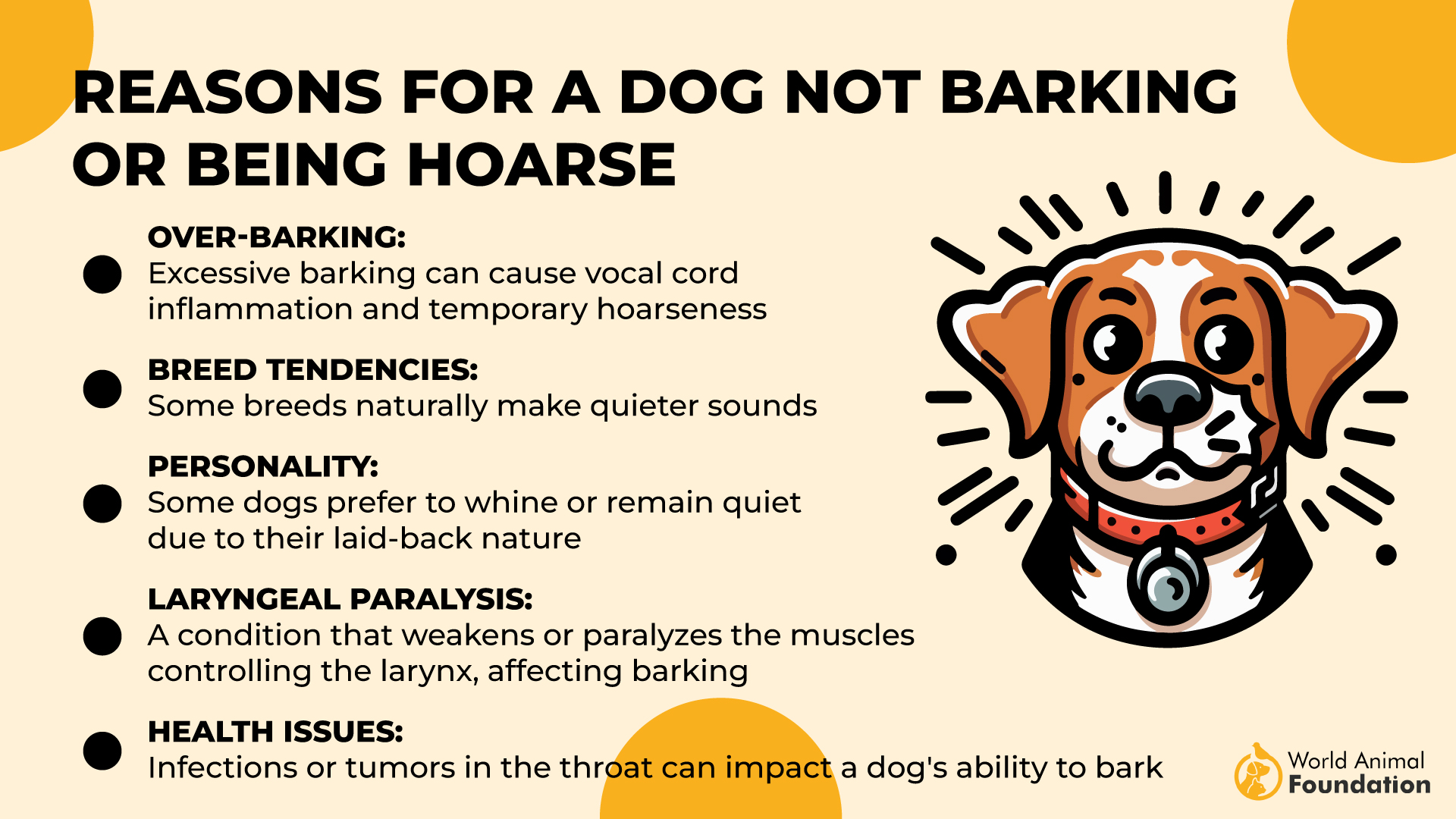When it comes to canine companionship, few things are as charming as a dog’s joyful bark. Yet, for some breeds, that bark isn’t just lively—it’s a force of nature. In this exploration of the canine soundscape, we delve into nine dog breeds renowned for their particularly triggering barks. Whether it’s a yip that commands attention, a howl that reverberates through the neighborhood, or a booming woof that startles with its intensity, these dogs possess vocalizations that are impossible to ignore. Understanding these breeds can help prospective owners prepare for life with a uniquely expressive pet.
Some dogs just love to talk—whether alerting you to a squirrel far away, sharing their excitement about dinner, or protesting your decision to go to work while leaving them home.
While all dogs bark, some have mastered the art of vocalization to a level that could annoy your neighborhood to the core. From high-pitched yips to deep, commanding woofs, these breeds know how to make their voices heard.
If you’re considering adopting one of these vocal dog breeds, you might want to prepare to embrace their unique personalities, quirks, and the constant barking that comes with this four-legged animal. Let’s dive into the world of the most trigger-happy barkers and see what makes them tick!
Dog Breeds with the Most Triggering Bark
1. Beagle
Don’t be fooled by the petite stature of these small dogs. Though they may look tiny and harmless, their unnecessary barking can be surprisingly piercing—enough to make you wrap your ears and move to a quieter room.
They are the best example of small dogs bark the highest!
Hound dogs possess an extraordinary sense of smell, which comes with a downside: an inclination to bark frequently. Their acute smelling senses often make them highly reactive to unfamiliar scents or sounds, triggering their instinct to alert. Known for their history of hunting small game, these dogs may vocalize excessively when they sense insecurity or something unusual.
Does this mean living with a Beagle will forever deprive you of peace?
No!
With proper training and socialization, especially at an early stage, you can manage beagles’ vocal tendencies. Be prepared to invest significant time and energy into teaching them to coexist with their human family. Training will help them differentiate between regular household scents and unusual triggers, ensuring your home remains lively and tranquil.
You would love their presence around you once you can train them and help them reduce excessive barking.
2. Yorkshire Terrier
Yorkshire Terriers boast a bold personality, unlike many other dog breeds. Don’t let their small stature deceive you—when they bark, they can easily scare kids away! Their frequent barking, often loud and piercing, can sometimes be a bit overwhelming. Britannica calls them high on energy. As natural hunting dogs, this instinctive bark is deeply ingrained in their behavior.
However, there’s no need to worry! In the canine world, there’s always a solution. Consistent training and socialization, along with positive reinforcement, have proven highly effective in helping pet owners address such behaviors where dogs bark excessively. If necessary, consulting a professional trainer can provide valuable guidance.
The key lies in starting early. Firm training is essential for managing the behavior of vocal dogs like Yorkshire Terriers, as they tend to be quite stubborn. They often express excitement through barking and require constant attention to keep them content.
3. Corgi
Corgis are naturally vocal, using their voice to express excitement and communicate with those around them. A Corgi might not be the ideal fit if you’re seeking a quiet companion.
Though they are typically independent, these natural watchdogs can struggle with separation anxiety if not properly trained to handle alone time. This often leads to excessive barking and negative dog behavior, especially when you leave the house. Their joyful and exuberant nature can also contribute to frequent barking, as their excitement sometimes gets the better of them.
Excessive barking may also indicate under-stimulation or frustration. To address this, it’s essential to provide your Corgi with ample physical exercise and mental stimulation, such as engaging in canine enrichment games.
While Corgis are not generally known for being aggressive, any dog can develop such behavior due to trauma, poor socialization, or negative past experiences. With early training and care, they can thrive as happy, well-adjusted family members.
4. West Highland White Terrier (Westie)
This tiny dog makes an excellent companion for adults, with ears that perk up at the slightest unusual sound. Known for their spirited personality and vocal nature, these dogs often make loud noises, especially when excited or seeking attention.
Yorkshire Terriers are an ideal choice for senior citizens. You might wonder how a barking dog could suit such a household, but their alertness as natural hunting dogs makes them perfect watchdogs. Being good guard dogs, they quickly notify their elderly owners of anything unusual, providing an added layer of security for those who may not be as active or aware of their surroundings.
Proper socialization is essential for these small dogs to adjust seamlessly to their new environment. These joyful little pets, who love expressing their happiness, can easily adapt to the rules and rhythms of the family they live with.
5. Miniature Schnauzer
If you’re searching for a reliable watchdog to alert you when something’s amiss, look no further than the Miniature Schnauzer. With their natural protective instincts, they excel at safeguarding the homes they inhabit.
However, there’s a caveat. These spirited dogs possess strong personalities and can quickly grow bored. When boredom strikes, excessive barking often follows. Ensure they receive ample physical activity to keep this in check and channel their boundless energy. Identify triggers and remove them efficiently to keep them cheerful.
Once they’ve expended their energy, the barking subsides. Regular exercise and engaging interactive toys work wonders in calming them. Their attention-seeking tendencies can also be skillfully managed with patience and tact.
6. Boston Terrier
Terriers are known for their love of barking, a trait rooted in their history as working dogs. However, the Boston Terrier has a notably low tendency to bark, as it was not bred for work—these dogs typically only bark when irritated or have excessive pent-up energy. According to AKC, taking them out for a walk is better to drain their energy and reduce the chances of them getting bored.
Boston Terriers are more likely to issue “warning barks ” when sensing danger or an intruder,” similar to most dogs. However, they often exhibit a “playful bark” rather than an aggressive or hostile tone.
To encourage quieter behavior, owners can use positive reinforcement techniques and redirect the dog’s focus when barking becomes excessive. This approach helps Boston Terriers learn to bark less frequently and maintain a calm demeanor.
7. German Shepherd
German Shepherds make excellent guard dogs but thrive on attention, and their barking is often a way of seeking it. As a highly energetic breed, they can develop pent-up energy without adequate mental and physical stimulation throughout the day.
Renowned for their strong protective instincts, these large dogs frequently bark to safeguard the people and property they hold dear. This trait often explains why your dog may be vocalizing.
Another common reason for barking is loneliness. German Shepherds are deeply social animals and may bark to express isolation or a desire for companionship.
If your dog’s barking seems unusual or persists despite adjustments to their routine, it’s advisable to consult your veterinarian to rule out any underlying issues.
8. Chihuahua
Despite their small size, Chihuahuas are known for their frequent barking. They often bark in response to triggers such as potential threats, strangers, other dogs, or loud noises. A proven method for reducing this behavior is desensitization—gradually exposing them to these triggers in a controlled setting while rewarding calm behavior.
Though loyal and affectionate, Chihuahuas are naturally cautious around strangers. Their protective instincts often drive their barking, as they are highly alert and quick to react to environmental changes. Whether it’s an unfamiliar person approaching, a sudden noise, or an unusual scent, Chihuahuas will bark to alert their owners to potential danger.
Their barking tendencies can also be influenced by living in smaller spaces, other pets’ presence, and the household’s overall activity level. In confined environments, Chihuahuas may bark more frequently to communicate or notify their owners about the happenings around them.
9. Fox Terrier
Fox Terriers are friendly, outgoing, and always up for an adventure! But these little dynamos have a big voice. As descendants of the Terrier family, they’ve inherited a love for barking and are not shy about letting their opinions be known.
Originally bred as fearless hunters, Fox Terriers are naturally alert and protective, always ready to sound the alarm at anything they find suspicious—or exciting! PetMD says they have a high-energy personality. This means they can be a bit loud, but that’s just their way of staying involved in the action.
These playful pups thrive on attention and don’t enjoy being left alone for too long. If they get bored or lonely, they might just belt out their signature high-pitched and loud bark to let you know.
Living with a Fox Terrier means embracing their spunky personality and quirky charm. With plenty of love, attention, and maybe a little patience, their barking becomes just another part of their fun and feisty character!
Conclusion
Barking may be a defining feature of these spirited breeds, but it’s also part of what makes them so lovable! But, at times, it could become a behavioral issue that must be addressed.
Whether sounding the alarm, expressing excitement, or simply trying to get your attention, each bark is a unique glimpse into their personality. With proper training, love, and patience, even the chattiest dogs can strike a balance between being vocal watchdogs and peaceful companions. Some other dog breeds bark excessively, and this behavior can be managed through training, including Basset Hound, Siberian Husky, Golden Retriever, and Cairn Terrier.
So, embrace the quirks, prepare for the occasional noise, and enjoy the endless entertainment these four-legged talkers bring into your life. After all, a quiet house is lovely—but a home filled with tail wags and the occasional bark? That’s pure joy!
In conclusion, while all dogs communicate through barking, certain breeds are particularly known for their more pronounced vocal tendencies. The breeds identified as having the most triggering barks often include those with strong protective instincts, high energy levels, or specific hereditary characteristics. Understanding these traits can aid potential dog owners in making informed decisions, ensuring that the breed they choose aligns with their lifestyle and living conditions. Additionally, proper training and socialization are essential in managing and channeling a dog’s natural barking behavior, fostering a harmonious relationship between dogs and their human companions.












